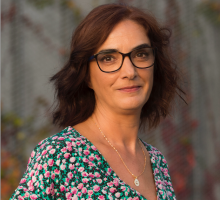Home
As Vice-Rector for Research at NOVA, she led a structural transformation in the university’s research support system, established the Strategic Council for Science, created the NOVA Science journal and NOVA Science Day, and restructured the Research Support Office to focus on scientific strategy, project management, and research information systems. During this time, she also championed gender equality, coordinating the SPEAR project and founding the Office for Equality and Inclusion.
She served as Chief Scientific Advisor to the European Commission, providing direct scientific advice to EU Commissioners and coordinating strategic studies on technologies for carbon capture and sustainable mobility within the EU's Scientific Advice Mechanism.
Scientifically, she directed the Associated Laboratory i3N, a European reference in advanced materials, sustainable electronics, and nanotechnology, which has secured twelve ERC grants, hundreds of international projects, and dozens of patents. Under her leadership, i3N became the most prominent research institute in Portugal in Materials Science and Nanotechnology, pioneering the first national PhD program in Nanoscience and Nanotechnologies.
Her achievements have earned her over 50 national and international honors, including the Pessoa Prize, the European Commission Horizon Impact Award, the Human Rights Medal of the Portuguese Parliament, and recognition as one of the 27 most inspiring women in Europe by the French Presidency of the EU.
Beyond her scientific contributions, she is a passionate advocate for science education as a driver of social and economic development, promoting STEM fields, gender equality, and the training of new generations of scientists. She regularly participates in international conferences, forums, and science outreach initiatives, affirming science as a tool for inclusion, accessibility, and sustainability. Her vision integrates research, innovation, science policy, and civic commitment—reflected in a career of real, transformative, and lasting impact in service of society.

